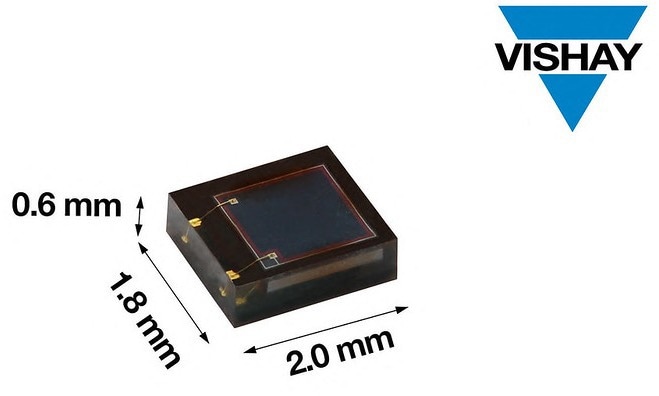The optoelectronics portfolio of Vishay Intertechnology, Inc. was expanded with the launch of a new high-speed silicon PIN photodiode that has improved visible light sensitivity.

Image Credit: Vishay Intertechnology, Inc.
Provided in a small, top-view, surface-mount package measuring 2.0 mm by 1.8 mm by 0.6 mm and featuring clear epoxy for optimal sensitivity, the Vishay Semiconductors (VEMD2074) offers a low capacitance of 17.6 pF and quick switching times of 70 ns, making it ideal for accurate signal detection in wearable devices.
With a 1.17 µA reverse light current and a 0.03 nA dark current, the device released today has a high radiant sensitivity of 1.51 mm² and can detect visible and near-infrared radiation over a wide spectrum from 350 nm to 1100 nm. The photodiode can be used with red LEDs for pulse oximetry applications and green LEDs for optical heart rate detection in wearable electronics like smartwatches and fitness trackers.
The VEMD2074 provides more flexibility in sensor placement, allows multiple photodiodes to be included in the optical system for more precise signal detection, and is smaller than previous generation solutions, making it easier to integrate into smaller products like earbuds. The gadget is perfect for price-sensitive devices like smart bands because it is also less expensive than previous generation photodiodes.
The VEMD2704 has a half-sensitivity angle of ± 67°, an operating temperature range of -40 °C to +85 °C, and a peak sensitivity wavelength of 940 nm. The photodiode is halogen-free, Vishay Green, RoHS compliant, and offers a moisture sensitivity level (MSL) of 3 for a 168-hour floor life, as per J-STD-020.